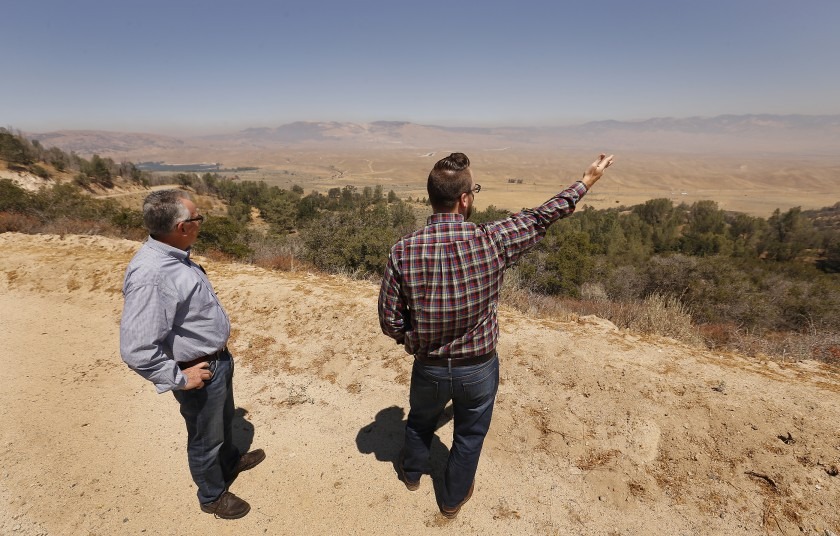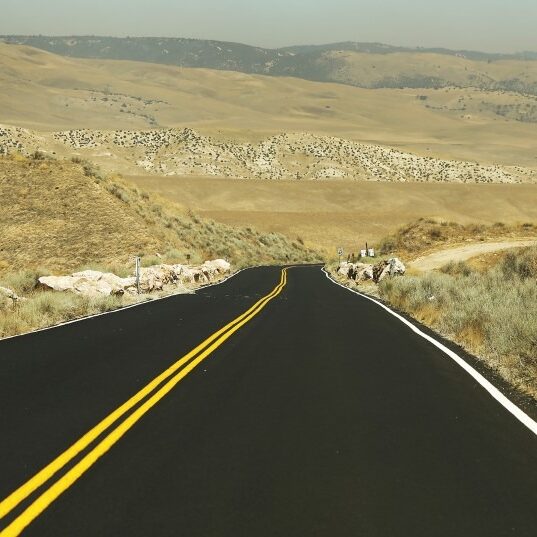Citing high wildfire risk, judge halts construction of massive Tejon Ranch development
By LOUIS SAHAGÚN | STAFF WRITER
For two decades, the Tejon Ranch Co. has envisioned a community of 57,000 people rising just off Interstate 5 on the southern flanks of the Tehachapi Mountains, about 70 miles north of Los Angeles.
With that goal in mind, the company brokered an agreement with several major environmental organizations in 2008 to conserve 240,000 acres of undeveloped mountains, grasslands and twisted oaks that are home to such species as California condors and mountain lions. In exchange, the groups agreed not to oppose the company’s controversial Centennial project.
The proposal to build 19,300 homes on 6,700 acres bordering Kern County won final certification two years ago from the Los Angeles County Board of Supervisors, and the company declared that it had been vindicated.

But plans to build the massive development were thrown into question this week when Los Angeles County Superior Court Judge Mitchell Beckloff rejected the county’s approval of the developer’s environmental impact report, effectively blocking construction.
Specifically, the judge cited aspects of the environmental review concerning wildfire risk and additional greenhouse gases generated by vehicles.
The ruling does not kill the project, but it does threaten to delay it significantly. It also comes at a time when a severe California housing crunch has caused rents to rise dramatically and pushed cities such as Los Angeles to approve denser developments.
Environmental groups have hailed the decision as a long-awaited victory, but the project’s developer said it would merely postpone construction.
“Environmental impact reports are extremely lengthy, complex documents and it’s difficult to get everything perfect the first time out,” Barry Zoeller, senior vice president at Tejon Ranch Co., said in a statement. “With the judge’s direction,” he added, the company intends to work with L.A. County to address what he described as “a few remaining issues.”
Beckloff found that the environmental review failed to buttress its conclusion that the project would not significantly increase the risk of wildfire in a region prone to wildfires. Although the judge found the developer’s on-site analysis to be “sufficient,” he found discussion of surrounding off-site impacts, such as wind-driven embers, to be “problematic.”
The judge also found that the developer mistakenly claimed that the cap-and-trade program would reduce 96% of its greenhouse gas emissions, which cause climate change.
“The project is not subject to the cap-and-trade program,” Beckloff said in a 62-page ruling issued Monday. “It is not a covered entity. As the project is not required to comply with the cap-and-trade program, cap and trade is not relevant to determining the significance of the project’s greenhouse gas emissions impacts.”
The ruling denied 20 of the 23 claims raised in separate lawsuits filed against Tejon Ranch Co. under the California Environmental Quality Act by Climate Resolve and by the Center for Biological Diversity and the California Native Plant Society. The plaintiffs were not among the original coalition of environmental groups who agreed to set aside legal action in exchange for land preservation.
Beckloff dismissed all the claims raised by the Center and the Native Plant Society. But the prevailing issues in Climate Resolve’s lawsuit were rare wins among more than a dozen legal actions filed against Tejon Ranch Co. since 2003 to delay or block development on the remaining 30,000 acres of its holdings.
The proposed developments include Centennial; Grapevine, a master-planned community in southern Kern County; and Tejon Mountain Village, which would include spas, boutique hotels, commercial space, golf courses and estate homes in southern Kern County.
Dean Wallraff, the attorney representing Climate Resolve in the matter, said Beckloff essentially provided new guidelines for Tejon Ranch Co. and L.A. County in trying to win recertification.
“Getting reapproval from the county won’t be easy,” Wallraff said. “It will require mitigation for significant impacts in terms of fire risk and greenhouse gas emissions, and they are far from that right now.”
County Supervisor Kathryn Barger, who represents the district where the proposed Centennial project would be located, was unavailable for comment. But Margaret de Larios, a spokeswoman for the supervisor, said that “county counsel was expected to brief her on the matter later today.”

